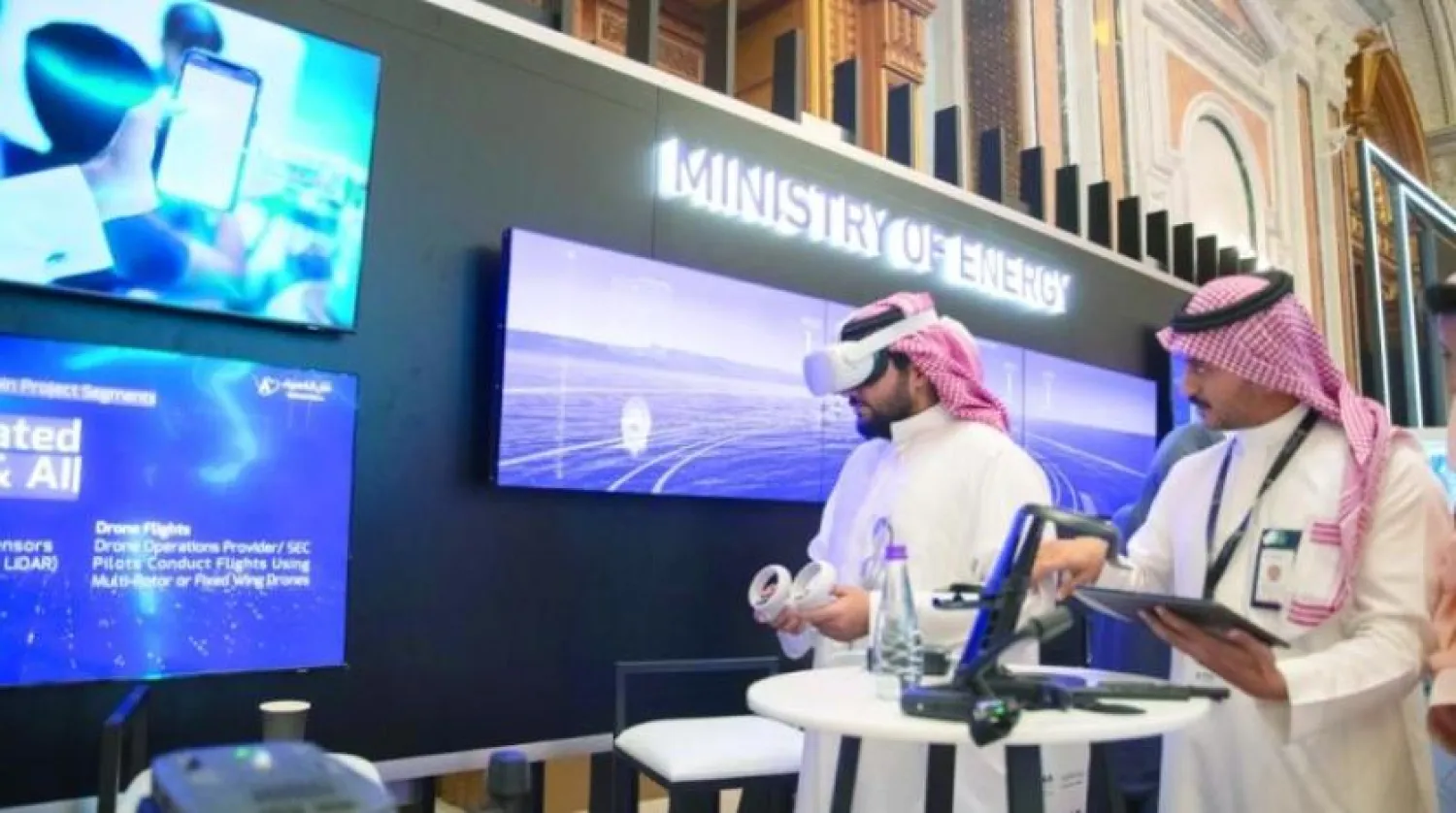The Saudi Data and Artificial Intelligence Authority (SDAIA) signed Tuesday several agreements to develop AI solutions locally and globally and accelerate the adoption of this technology in the Circular Carbon Economy.
The Ministry of Energy and SDAIA signed a strategic agreement with IBM to accelerate the adoption of the Circular Carbon Economy.
The announcement was made during the Global AI Summit in Riyadh between September 13 and 15.
The CEO of the National Center for AI, Majid al-Tuwaijri, announced that the agreement would contribute to creating opportunities by addressing critical challenges in the circular carbon economy, petrochemical, and industrial domains.
It will develop innovative solutions in data, and AI and exchange shared experiences and investment opportunities in this vital area to support achieving Vision 2030 goals.
Ministry of Energy's Assistant Minister for Development and Excellence Ahmed al-Zahrani indicated that the agreement would allow IBM to leverage technology expertise like AI.
Zahrani indicated that it would play a key role in promoting the adoption of the Circular Carbon Economy, achieving the goals announced during the Saudi Green Initiative.
The managing partner of IBM Consulting Saudi Arabia, Dina Abo Onoq, stated that managing greenhouse gas emissions is critical to the Kingdom's reaching its objective of net zero.
She announced that IBM would train an AI model to recognize and pinpoint different gas forms through multiple satellites and various imaging technologies.
Moreover, SDAIA, represented by Artificial Intelligence Center for Energy, signed an MoU with Halliburton Company (listed on New York Stock Exchange) to develop artificial intelligence (AI) solutions in oil and gas, locally and globally.
The agreement aims to enhance cooperation between the two entities by taking advantage of its AI cloud solutions in developing exploration and production solutions, as well as its solutions that support sustainability processes in this field to serve the goals of the Saudi energy sector.
Also, at the summit, SDAIA signed an agreement with Siemens Advanta to develop AI solutions for the Saudi energy sector to increase energy efficiency and enhance the integration of renewable energy sources.
Under the agreement, Siemens will work closely with the AI Center for Energy in the Kingdom to develop scalable AI solutions that will help achieve lasting economic, social, and environmental benefits and support the achievement of the country's goals of becoming a leader in AI.









